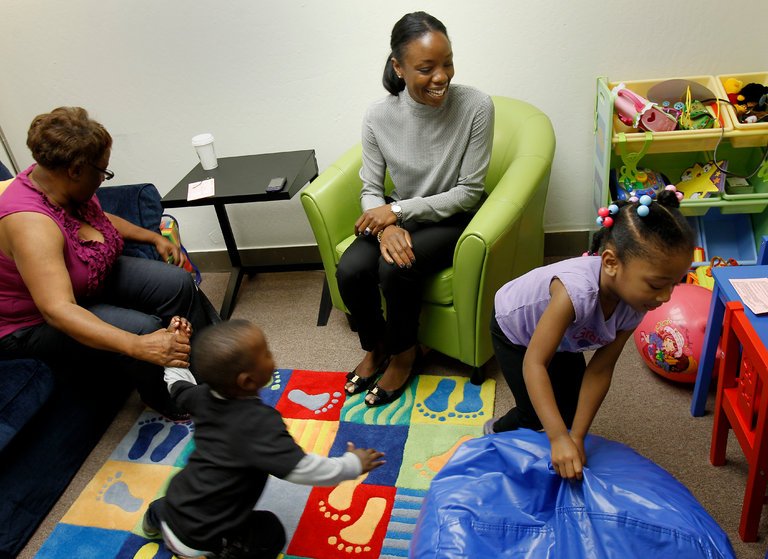A candid interview with Dr. Nadine Burke Harris, founder of the Center for Youth Wellness and author of “The Deepest Well: Healing the Long-Term Effects of Childhood Adversity”, provides powerful validation for what we already know to be true: that Adverse Childhood Experiences are tremendously detrimental to a person’s physical health, mental welbeing, behaviors and relationships, setting them up for major problems in one or more of these key areas later in life.
 Dr. Burke explains at length the physical impact of childhood adversity on the brain, body, immune system, and very DNA of a person, and details the negative outcomes this impact produces in young people and overtime, in adults.
Dr. Burke explains at length the physical impact of childhood adversity on the brain, body, immune system, and very DNA of a person, and details the negative outcomes this impact produces in young people and overtime, in adults.
She further echoes the concern that most professionals and health care practitioners are poorly educated and prepared to identify and account for ACEs, which are a major factor in many of the maladies they come across every day. She feels it is essential for every pediatrician and other physicians to screen for ACEs before establishing a diagnosis and treatment for a patient. “In 2008, I came across the ACE Study…,” Dr. Burke Harris says. “I was absolutely shocked that I had never heard about it and that as a doctor I was never trained on it…Ultimately, every pediatrician in America needs to be screening for ACEs….For me it’s no different than laying a stethoscope on a patient’s chest.”
Her interview also reinforces one of the key premises our work here at CDVA centers around: the buffering, healing, transformative effects of THE ONE – a caring adult who steps in at a critical time to help foster the resiliency of a child impacted by adversity. As Dr Burke Harris states, “One of the key ingredients for keeping the body’s stress response out of the toxic stress zone is the presence of a healthy buffering caregiver.”
Finally, Dr. Burke Harris further reaffirms that AWARENESS is the first step to addressing this “public health crisis.” According to her, “it starts with raising awareness, so that people understand there is a problem to begin with.”
Original Source: David Bornstein, “Treating the Lifelong Harm of Childhood Trauma,” The New York Times, Jan 30, 2018, https://www.nytimes.com/2018/01/30/opinion/treating-the-lifelong-harm-of-childhood-trauma.html
